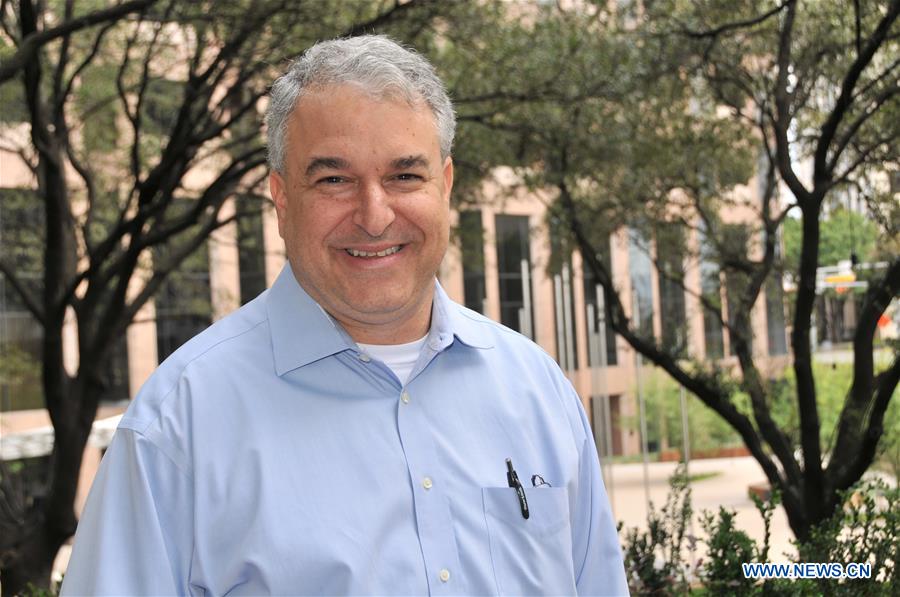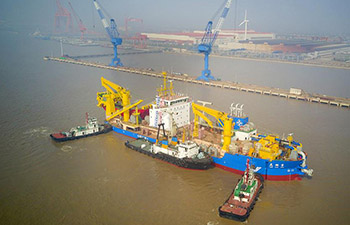
David Firestein, inaugural executive director of the University of Texas at Austin's China Public Policy Center, recieves an interview with Xinhua in Austin, the United States, on Oct. 31, 2017. Infrastructure cooperation can be a "positive momentum generator and trust builder" in the relationship between the United States and China, the U.S. expert and former diplomat said. (Xinhua/Liu Liwei)
by Gao Lu
AUSTIN, the United States, Nov. 7 (Xinhua) -- Infrastructure cooperation can be a "positive momentum generator and trust builder" in the relationship between the United States and China, a U.S. expert and former diplomat said.
In a recent interview with Xinhua, David Firestein, inaugural executive director of the University of Texas at Austin's China Public Policy Center, said he believed there is a great potential for U.S.-China cooperation in the field of infrastructure.
"To me that is potentially an issue (that) could actually transform the U.S.- China relationship," said Firestein. "(The) U.S. has a surplus of need and a deficit of capital. China has a surplus of capital and also substantial know-how in any sector in the infrastructure world."
Firestein cited high-speed rail as an example, in which area China takes the lead. "There is a massive surplus of capital that could be brought to bear a very positive impact on U.S. infrastructure needs," he elaborated.
Cooperation and collaboration in infrastructure is "a true win-win" that could "change the current U.S. narrative which is China is stealing our jobs to a new narrative which is China is helping create jobs in the U.S," he said.
CONTINUITY IN RELATIONSHIP
There has been a "considerable consistency" in the American policies towards China since Donald Trump took office as U.S. president this year, said Firestein, who, a former diplomat, has spent most of his more than 20 years of professional career working on China and U.S.-China relations.
"I actually believe that under this president, it's possible to have a rather good, rather strong relationship between our two countries," he added.
But he also warned that both countries must do their part to safeguard the relationship.
"Creating an atmosphere of political sustainability as the foundation, or anchor, for a more robust relationship I think is the most urgent and fundamental issue in the relationship today," he reiterated.
"Both countries need to pay attention to the relationship and take steps to create a stronger foundation for the relationship and not taking anything for granted."
TEXAS AS GATEWAY
Born and raised in Austin, capital of Texas, Firestein recommended the state as the "gateway" for Chinese to understand the U.S. "heartland."
Texas ranks the second among U.S. states both in size and in economy. Were it a country, it would be the 12th biggest economy in the world.
Economic cooperation between China and the U.S. state has been thriving in the past years. Data show China is Texas' third largest export market and the second largest source of imports. Texas is the third most popular destination for Chinese foreign direct investment.
Firestein believed "the greatest potential is still out ahead of us." He said there has been a lot of Chinese focus on the east and west coasts of the United States where the capital and most big cities are located, but "Texas is the gateway for China to the heartland of the America."
"We understand that role and we as a state and as a university are uniquely positioned to be able to help China gain deeper insight into the deep current American politics and society in a way that's good for the U.S.-China relationship," he said.















